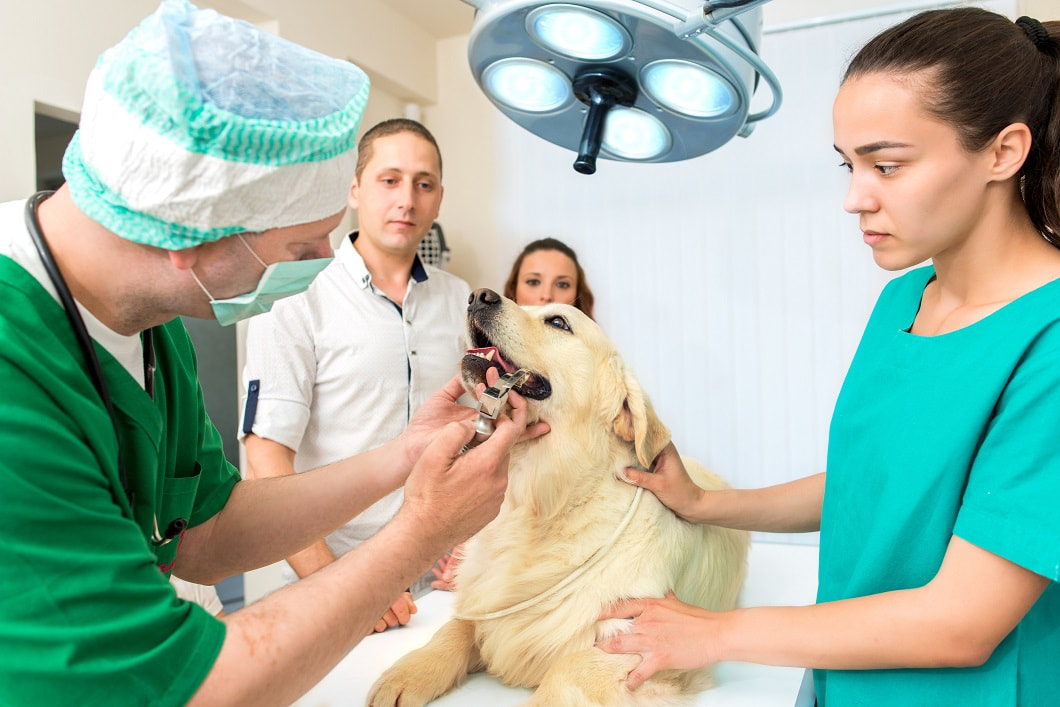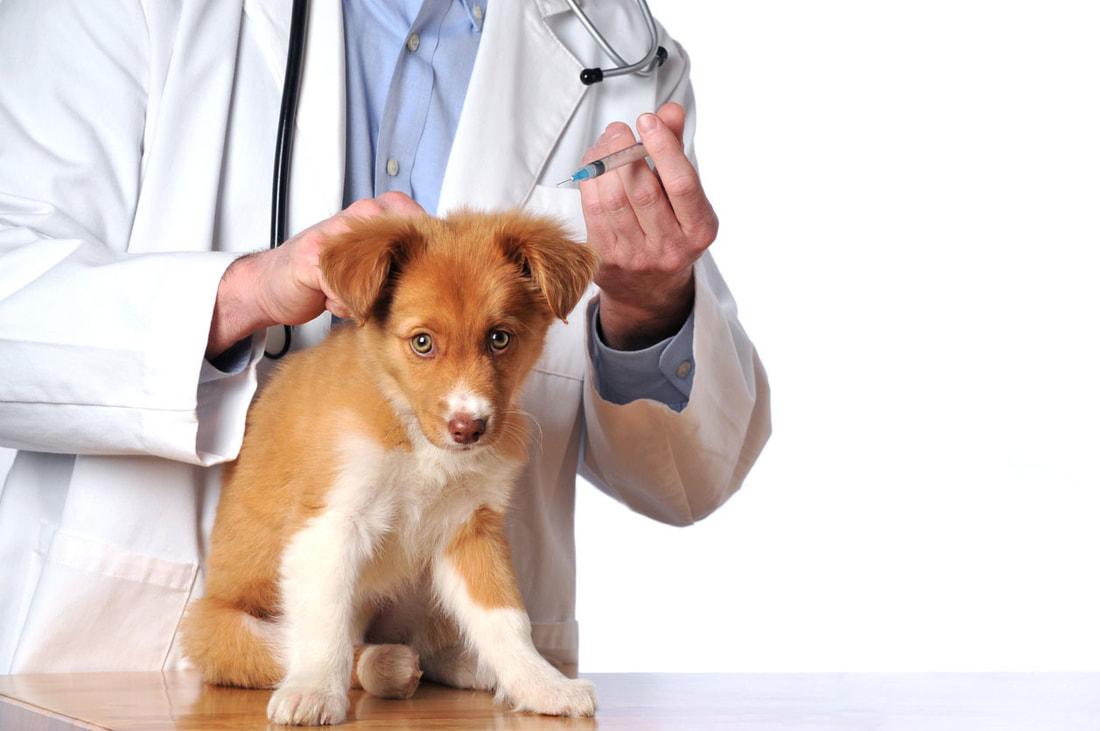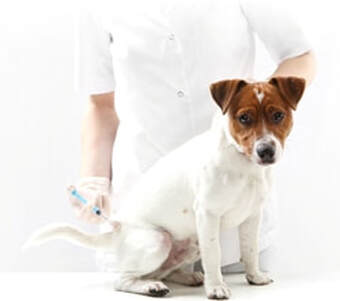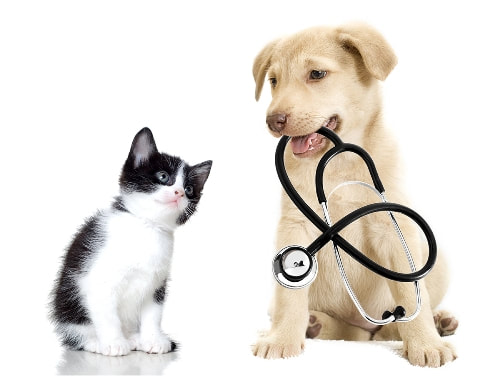|
Heartworms are deadly, and left untreated will grow to be over a foot long. Dying from heartworm disease is painful and causes many problems with multiple organs. Heartworm disease decreases your dog’s quality of life, making it difficult for your dog to participate in any type of physical activity. Untreated heartworm disease is fatal, usually due to heart attack or organ failure. The good news is, nearly all dogs who have heartworms can be successfully treated, and the earlier you catch it, the easier it is to treat. If you miss one month of heartworm prevention medication, you can continue as soon as you remember, but if you miss two months, it’s important to get your dog tested again before continuing treatment, and then again in six months in order to make sure all of the larvae were killed.
Learn more here
0 Comments
Taking care of cat and dog teeth is as important for many of the reasons proper dental care is an essential part of human’s health care. Reasons to have pet dentistry care performed on cats and dogs include:
Learn More The question of whether to spay and neuter household pets is ethical depends on your viewpoint and a close examination of all the facts and consequences. There is a faction of activists who feel that spaying and neutering dogs and cats is unfair and inhumane treatment. The procedure has been labeled “speciesism” in attempts to paint the animals as being abused and altered without their consent.
The general consensus among the veterinary science community is that spaying and neutering your pets is a safe procedure that only enhances the quality of life for the individual animals and improves the harmful consequences of animal overpopulation. Read More Get on your puppy’s level and scout out the things they may choose to chew on or get into. Get some baby gates if there are areas you need to be puppy-free. When they first arrive at the house, you may want to keep your puppy on a tiled area, or another surface that is easy to clean. We also recommend placing a mat under your puppy’s food and water bowls.
Find out more Oftentimes, pet owners don’t consider what to do in an emergency situation until they are in the midst of a crisis. Planning ahead and being aware of nearby, reputable emergency veterinarians near you may save your pet’s life.
To find an emergency cat vet, ask your regular veterinarian for an emergency animal hospital recommendation or search the internet for clinics in your area. How Can I Tell If My Cat Is Sick or Injured? It can be difficult to figure out whether or not your cat is ill or injured as cats are known to hide their illnesses. However, an unwell cat will likely exhibit a variety of subtle signs. Some of the most common signs of illness or injury in cats are:
If your pet is having an emergency, the first thing you must do is remain calm. Pets pick up on our emotions and behaviors; if they see that their owners are in a state of panic, they too will begin to panic. Seeking emergency medical care for your pet may save your pet’s life. If you think your pet is suffering a life-threatening emergency or is in pain, seek out an emergency animal clinic immediately. Should I Take My Cat To The ER? It is always best to err on the side of caution if you are questioning whether or not you should take your cat to a cat emergency clinic. Second-guessing yourself could mean a death sentence for your pet. How Can I Hydrate My Cat at Home? A common yet potentially deadly ailment in cats is dehydration, which can lead to a host of health conditions. Depending on the severity of your cat’s dehydration and the underlying causes, your pet may require IV fluids. It is best to seek out the care of an emergency animal hospital if you believe your cat is dehydrated. Emergency Vet Albuquerque The emergency vet care Albuquerque pets need is available at Petroglyph Animal Hospital. If you believe your cat is experiencing a medical emergency, call right away at 505-898-8874. Original Source: https://petroglyphanimalhospital.blogspot.com/2019/12/where-do-i-find-emergency-vet-for-cats.html Dogs cannot speak for themselves and rely on their owners to make medical decisions on their behalf. If your dog is experiencing a medical emergency, he may need to be rushed to an emergency animal hospital. Knowing when to make that decision is imperative, as any wasted time could mean life or death for your dog.
It is a good idea to have a plan in place before an emergency happens. Find a local dog emergency room near you and familiarize yourself with the hours of operation, contact numbers, and the steps you will need to take if you need to bring your dog in for a visit. Knowing what constitutes an emergency as well as where the nearest emergency animal hospital will save your sanity, and maybe your dog’s life if the worst happens. What Do You Do If Your Pet Has An Emergency? The best thing you can do if your pet is experiencing a medical emergency is to remain calm. Dogs are very empathetic and will pick up on even your most subtle cues. If you show your dog that there is a reason to panic, he will panic with you, likely increasing the severity of the situation. Making the decision to take your dog to the emergency animal hospital should be made quickly. Any wasted time could mean What Is Considered An Emergency For A Dog? Any time you feel that your dog’s life is threatened or he is in extreme pain is an emergency. For example, labored breathing, excessive bleeding, or a broken bone is considered an emergency. If you are not sure whether or not your dog is experiencing a medical emergency, call and speak with the closest emergency animal hospital and describe your pet’s symptoms. Should I Take My Dog To The Emergency Vet? If you are questioning whether you should take your dog to the emergency animal hospital, the answer is likely yes. Trust your instincts - if your dog is suddenly lethargic, struggling to breathe, excessively panting and vocalizing, or in obvious, extreme pain, the best course of action is to seek emergency medical attention. Where Do I Find an Emergency Vet For Dogs? If you believe your pet’s health is in jeopardy, let Petroglyph Animal Hospital provide your animal with the emergency vet Albuquerque families have relied on for decades. Call right away at (505) 898-8874. Original Source: https://petroglyphanimalhospital.blogspot.com/2019/12/petroglyph-emergency-care-for-dogs-in.html Now, more than ever, pets are members of the family. Like any other member of the family, pet owners want to make sure their pets are healthy and feeling their best at all times. When a pet gets sick, many pet owners are tempted to diagnose their pet at home and order medications online. Buying pet medication online can be convenient and oftentimes less expensive than purchasing from a pharmacy, however, these medications can be severely detrimental to your pet’s health.
It is nearly impossible to tell if the medications available online are legitimate, safe, or even legal. Giving pets medication purchased from an online source can have a number of adverse effects. Online medications may be ineffective or cause your pet’s condition to further decline, or worse. Visit Your Veterinarian’s Office Your pets depend on you to take care of them. When your pet isn’t feeling well, it is a natural, caring response to want to help them feel better quickly. Instead of getting online and searching for symptoms (which we all know could lead to unnecessary panic), taking them to your vet will allow both peace of mind and an accurate, medically sound care plan. Taking your pet to the vet ensures that whatever might be causing their discomfort, will be properly diagnosed. Your vet has the experience, education, and high-tech medical equipment to make a proper diagnosis. Your vet will know what symptoms are significant and what each one may be causing. He or she knows how to put the puzzle together to make sure that they are giving your pet the most accurate diagnosis so that they can be appropriately treated. Safe, FDA-Regulated Pet Medications After a thorough exam and diagnosis, your vet will then be able to prescribe the correct medicine for your pet. Based on your pet’s exact symptoms, their species (and sometimes based on their specific breed), the vet will choose the exact dosage and exact medicine for your particular pet. When buying medication for your pet, taking them to the vet is essential. If you purchase any medications online, you run the risk of misdiagnosing, getting the wrong medication, or worse. Not knowing exactly what is being put in the medications that you are buying online is a dangerous game of blind trust. The safest thing you can do is get your pet prescriptions directly from a veterinarian or pharmacy. Visit Us When it comes to proper pet medication for animal care, Albuquerque trusts Petroglyph Animal Hospital. Call to make an appointment or stop by our clinic. Our caring, compassionate staff will treat both you and your pets like family! Just Call (505) 898-8874 Original content was posted on https://www.pahvets.com/should-you-buy-pet-medications-online/ Petroglyph Animal Hospital of Albuquerque New Mexico knows how important it is to find the right Veterinarian, Animal Clinic or Animal Hospital for you and your family pet. Here are some important considerations to make when choosing the right animal clinic for your pet in Albuquerque.
One of the most important decisions to make as a pet owner is what veterinary practice in your local area is right for you and your family pet. Finding a quality health care provider for your furry or scaly friend, can promote a healthier, longer life for your adopted animal loved one. Selecting the right veterinarian is a personal decision. You’ll want to select an animal hospital practice that offers the highest available standard of care for your pet and their particular needs. How to choose what veterinarian is right for you? It’s always a good idea to start by asking for recommendations from friends, family and trusted neighbors. You can also ask your local breeders and pet stores for their recommendations. After you have sought the advice of people you know, the next step is to consider the following advice when actually selecting your family vet.
Your questions may vary depending on the reason for your visit, but you can use the following list as a guide, especially when selecting a new practice to provide health treatment for your pet.
If you have concerns about the quality of care being provided by your current vet, don’t worry, you can find a practice that better serves your needs. Most veterinary practices, like all businesses, expect clients to come and go. Before you leave, remember to ask for a complete copy of your pet’s health records to be mailed or faxed to you or your new animal healthcare practitioner. Petroglyph Animal Hospital serves the Greater Albuquerque, New Mexico Area. If you are looking for a new animal clinic, veterinarian, or animal hospital for your adopted furry or scaly loved one, we would love for you to consider us as part of your new pet’s health considerations. Just Call (505) 898-8874 Original content was posted on https://www.pahvets.com/how-to-find-the-right-animal-clinic-for-your-family-pet/ Sometimes, asking the right questions can mean life or death to your favorite small animal pet. At Petroglyph Animal Hospital of Albuquerque, New Mexico, we specialize in a wide range of Family Pet Veterinary Services. One of our specialties is small pet veterinary diagnosis, care, surgery and after-care. Ask us the hard questions and we will give you the right answers for you and your small animal pet.
Whatever your pets surgical needs, they are completely dependent on you to find the right veterinarian to perform that surgery successfully with minimized risks and a comfortable after-care and recovery period. Petroglyph Animal Hospital has compiled a list of important questions that you should refer to when selecting the right veterinary hospital to perform your pets surgical needs.
It is a tremendous benefit to your pet if their surgery needs are fulfilled by a veterinary surgical specialist. At Petroglyph Animal Hospital we are able to provide your small animal pet, and loved one, with the most up-to-date, technologically advanced, surgically certified small animal surgical veterinary center in the Greater Albuquerque, New Mexico area. Schedule an appointment with our veterinary team today and find out how we can benefit you and your small animal with our state-of-the-art small animal surgical center. Call Us Today at (505) 898-8874 Original content posted on https://www.pahvets.com/questions-to-ask-your-small-animal-veterinarian/ Do you know what to look for when choosing your animal clinic in Albuquerque? Petroglyph Animal Hospital, located near Coors Blvd. and Paseo del Norte, is here to give you helpful advice about important considerations to make when you are selecting a new animal clinic for your pet.
Walk-In Appointments Available We understand that many pet owners have a busy schedule. You need the freedom to take your pet to the animal clinic whenever you need, to which means you need a reliable facility that offers walk-in appointments with no scheduling necessary. Extended Hours Throughout the Year Of course, accidents and problems don’t always occur during business hours. Along with walk-in appointments, it’s helpful to have a veterinarian that is open late into the night, on weekends, and during major holidays. Routine Veterinary Services Any animal clinic you bring your pet to should be able to administer consistent care to your pet over the course of its life and development. This means being able to provide vaccinations, basic wellness exams, minor injury and illness care, and other general veterinary services. Emergency Veterinary Services The right Albuquerque animal clinic should also be ready to administer emergency veterinary intervention to your pet at a moment’s notice. These facilities need to be equipped with the resources and extensively trained staff that can save your pet’s life when necessary. In-House Lab & Equipment Just because a veterinarian can treat an emergency doesn’t mean that they can provide the long-term care that your pet needs. In fact, many emergency centers do not have the equipment necessary to provide follow-up care after the emergency. Make sure your animal clinic provides a full spectrum of services in-house. Qualifications & Certifications Always check to see what types of certifications and qualifications an animal hospital has before scheduling an appointment with your vet. An AAHA accredited animal clinic will meet the highest standards of veterinary excellence. You should also discover what qualifications and certifications the facility’s staff will have, looking for specialized training or memberships in notable veterinary associations. A Warm & Welcoming Facility Ultimately, you and your pet need to feel comfortable and confident in your veterinarian. We invite you to visit Petroglyph Animal Hospital, the friendly and knowledgeable full-service animal hospital Albuquerque pet owners trust. Original content posted on https://petroglyphanimalhospital.blogspot.com/2019/08/what-to-look-for-when-choosing-animal.html |
AuthorAt Petroglyph Animal Hospital we offer a wide variety of Veterinarian Services. We want to be you one stop destination for total pet care. We firmly believe that your pet deserves the best treatment, whether your pal is furry, feathered or scaled! Petroglyph Animal Hospital is a modern, clean and comfortable veterinary clinic with everything from laboratory services, radiology services, surgery and even dental care. Archives
August 2019
Categories |










 RSS Feed
RSS Feed
